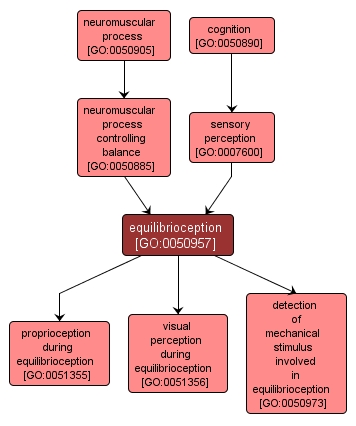| Desc: |
The series of events required for an organism to receive an orientational stimulus, convert it to a molecular signal, and recognize and characterize the signal. Equilibrioception refers to a combination of processes by which an organism can perceive its orientation with respect to gravity. In animals, stimuli come from labyrinth system of the inner ears, monitoring the direction of motion; visual stimuli, with information on orientation and motion; pressure receptors, which tell the organism which body surfaces are in contact with the ground; and proprioceptive cues, which report which parts of the body are in motion. |














